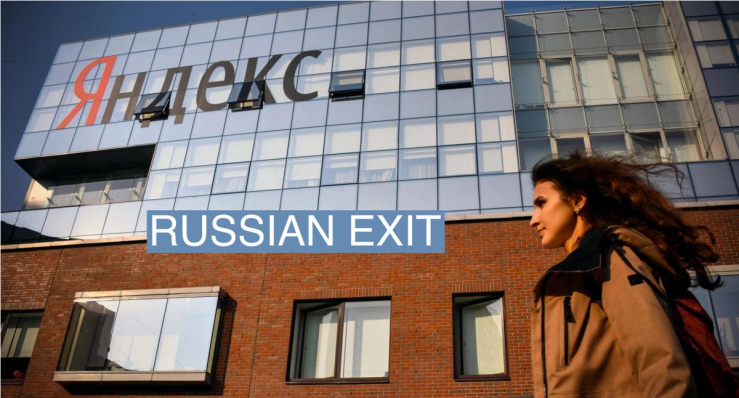
Semafor Signals
Sale of ‘Russia’s Google’ tightens Moscow’s grip on the internet
Insights from The Bell, Meduza, and The Moscow Times

The News
Tech giant Yandex — dubbed “Russia’s Google” — has agreed to sell its Russian assets to a consortium of investors for $5.2 billion, the biggest corporate exit from the country since the Kremlin’s invasion of Ukraine in 2022.
The company, which is registered in the Netherlands but conducts most of its business in Russia, said that the government-backed sale includes 95% of its assets, including the country’s most-popular search engine, a ride-sharing application, and an e-commerce platform. The deal, which comes after Yandex struggled to navigate the fallout of the war in Ukraine, is expected to allow Moscow further control over the Russian internet.
Russian politicians hailed the move. “The successful case of Yandex will be an example for everyone else: It’s time to stop working with an eye to the West, your future is here, in your homeland,” Anton Gorelkin, deputy head of the Russian parliament’s committee on information policy, wrote on Telegram.
SIGNALS
Yandex sale strengthens Kremlin’s control over the internet
While Yandex’s true ownership structure under the deal remains opaque, “there is little doubt that the final agreement will cement the Kremlin’s control over the entire online landscape in Russia,” according to The Bell, an independent Russian economics outlet. Sources with knowledge of the deal believe that the investors purchasing Yandex’s Russian assets may be representing figures close to the Kremlin, Meduza reported. For more than a decade, Moscow has been seeking to consolidate its influence over internet providers and social media platforms. It has also attempted to develop a self-contained internet disconnected from the rest of the world, dubbed “RuNet.” The Kremlin’s online crackdown has included removing over 10,000 news items and posts about the war in Ukraine from search engines, according to a Radio Free Europe investigation of leaked government documents.
Yandex deal illustrates the difficulty of exiting Russia
Yandex’s sale price reflects the 50% discount that the Kremlin has imposed on foreign companies seeking to exit Russia. Businesses that did not sell their Russian assets in the initial exodus in 2022 have found it hard to leave, as new rules have made divestment more costly. The regulations have led some CEOs to argue that leaving Russia would violate their duty to their shareholders, while others have said that selling at a bargain price ultimately aids the Kremlin, the Financial Times reported. Still, almost 10,000 foreign companies have exited Russia since 2022, the Russian financial daily Vedomosti reported.
Yandex’s troubles show the challenges of running a global business in Russia
For Yandex’s leadership, the sale marks the end of a struggle to comply with Russia’s stringent online censorship laws, while also avoiding Western pressure. Following Russia’s invasion of Ukraine, at least three senior Yandex executives condemned the war, and thousands of Yandex employees left Russia. Yandex founder Arkady Volozh, who criticized the war in Ukraine as “barbaric,” has faced EU sanctions that forced him to step down from the company. The story of Yandex’s exit has become increasingly familiar in Russia: More founders of “unicorn startups” —companies that reach a $1 billion market valuation within 10 years — leave Russia than any other country, a study from Moscow’s Higher School of Economics found. Pavel Durov, the founder of VKontakte — a Facebook-like social media platform that was taken over by Kremlin-backed oligarchs in 2014 — has described Russia as “incompatible with the internet business.”

